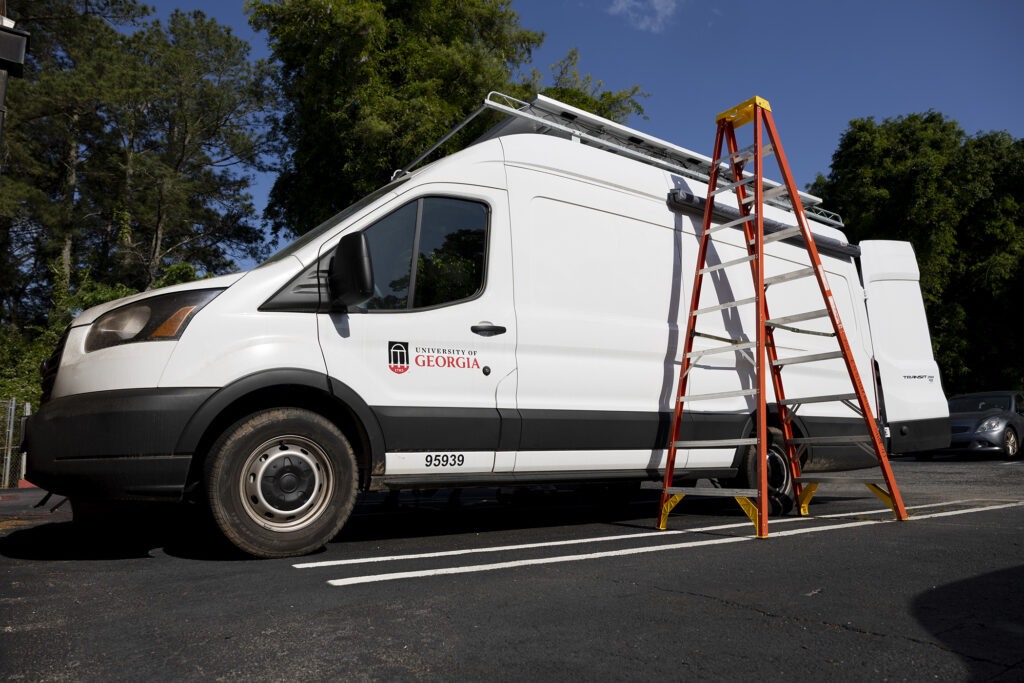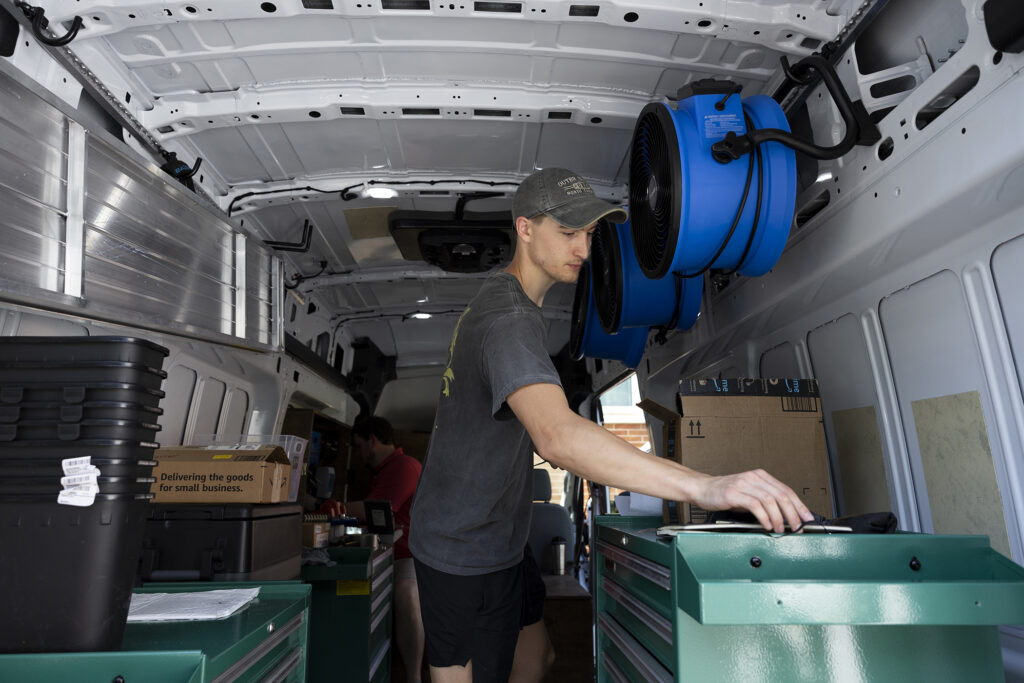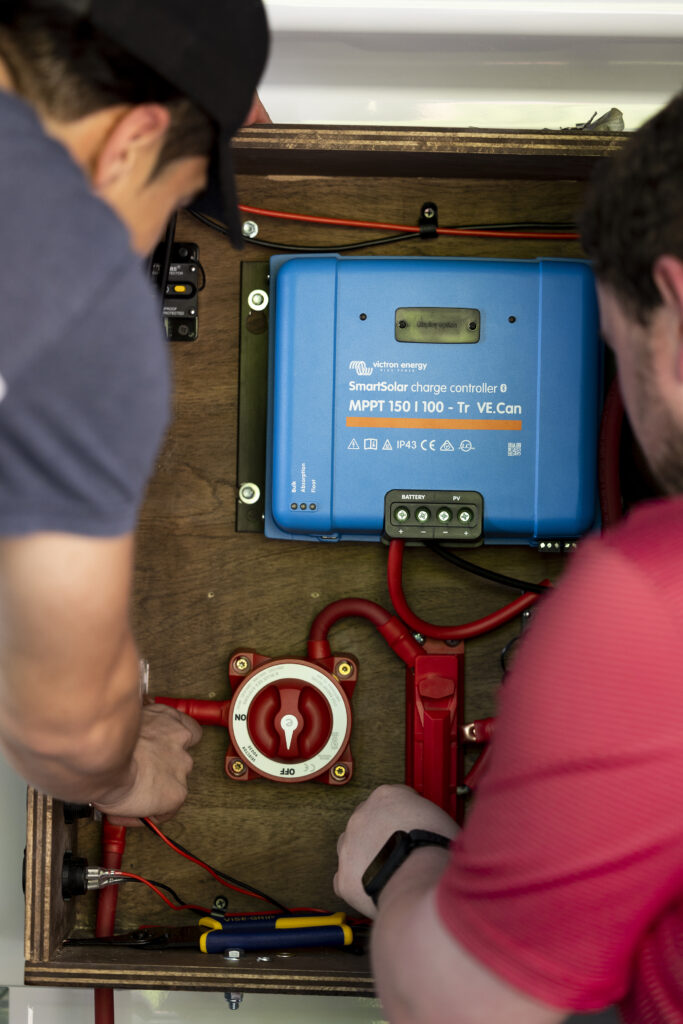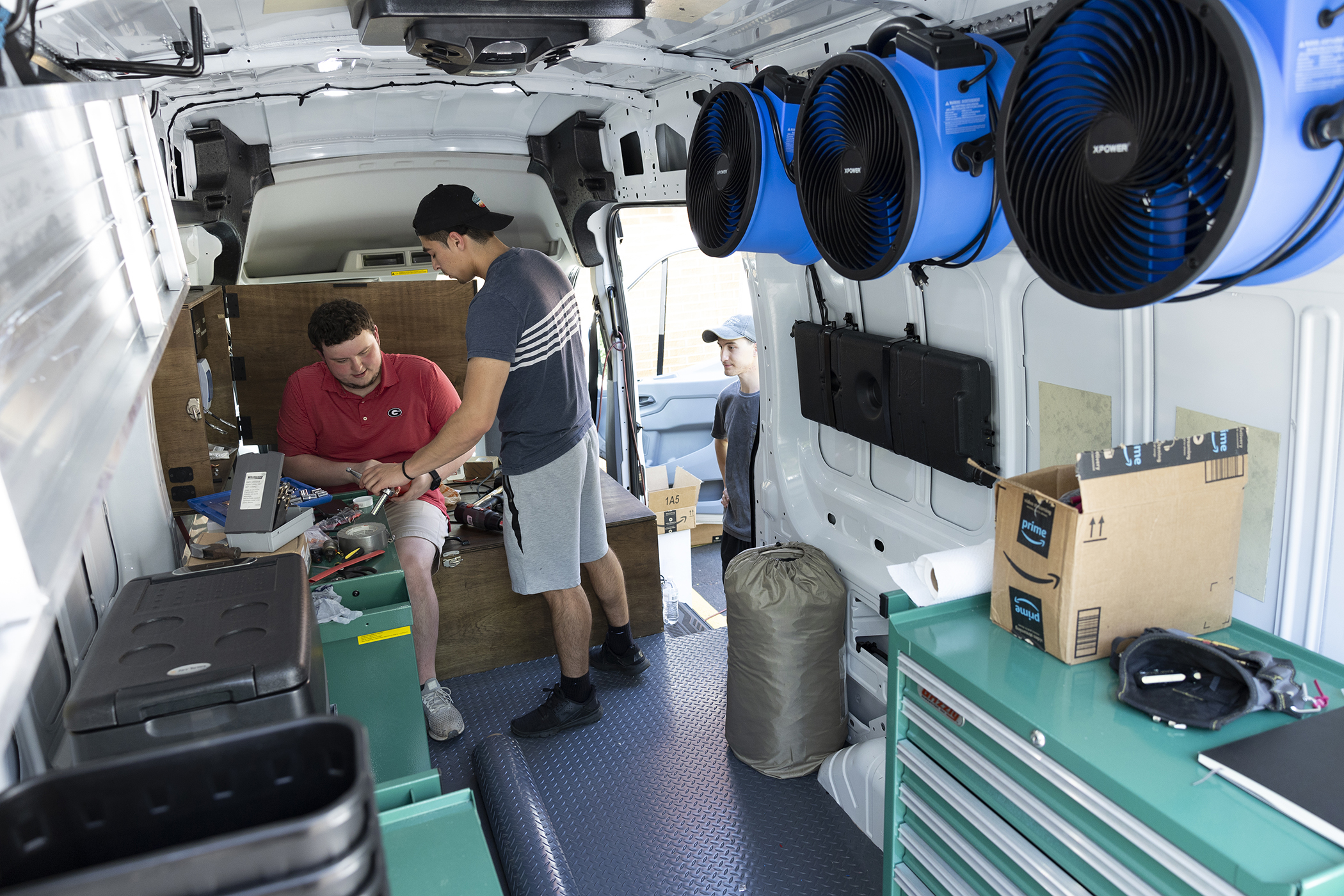The cargo van used to provide mobile health care to the Athens community just got a makeover.
Several University of Georgia engineering students worked on improving the van’s capabilities for their senior capstone project. The result is a mobile clinic that now has two pop-out exam tents, new fans and lighting, a ramp, a portable sink, rolling exam carts, Wi-Fi, solar panels, heating, ventilation and air conditioning. The students also accomplished the primary goal of outfitting the interior to become a private exam room for patients.
The Augusta University/University of Georgia Medical Partnership Mobile Clinic/Athens Free Clinic has left a substantial mark in the Athens community since its founding in 2017.

The clinic provides health care to an underinsured population that might not otherwise have access to care. So far, the mobile clinic has administered over 4,000 COVID-19 vaccines and more than 3,500 tests, and the clinic’s staff is currently creating a new health center at Clarke Middle School.
In 2019, thanks to a $20,000 CVS Health Foundation grant, the mobile clinic was able to upgrade to a larger van, which allowed the clinic to carry more equipment and treat more patients. But the interior was still not being used to its potential.
By 2021, Dr. Suzanne Lester, director of the mobile clinic, was on a mission to get the inside of the van to function as an exam room.
“It was an empty cargo van, so we used it to transport gear that we set up outside the van, but didn’t utilize the inside,” said Lester.

After researching companies who could outfit the van, Lester wasn’t seeing anything that fit the needs of the clinic. After brainstorming with Medical Partnership administration, the idea to revamp the clinic turned inward to UGA’s College of Engineering.
“I just thought maybe we could get some engineering students to MacGyver it for us and make it adaptable for various uses,” said Lester.
Lester met with College of Engineering Dean Don Leo and Associate Dean of Research, Innovation and Entrepreneurship Jaime Camelio and the plan was finalized to make revamping the van a capstone project for engineering students. Capstone projects are two-semester courses for senior engineering students that provide opportunities to solve real-world engineering design problems.
The engineering students got to work on the van in fall 2021 with two student teams: electrical and mechanical.
Hayden Lucas, a fifth-year mechanical engineering student, was on the electrical team. He was excited to take on a project that not only would benefit the health care community in Athens, but further his engineering experience before he entered the professional world.

“While benefiting the partner, these projects allow students to develop essential skills required of them when entering the workforce that includes teamwork, creative problem solving and cooperative collaboration, while also giving them the opportunity to lead an engineering design project from planning to completion,” said Lucas.
The teams began brainstorming and planning in fall 2021 Physical work began on the van this spring. The plan was to make the van not only functional, but also environmentally smart with solar panels.
“I am very interested in environmental sustainability as it pertains to manufacturing and engineering applications,” said Lucas. “I saw this project as a useful opportunity to grow my knowledge and experience in solar power generation and storage.”
The engineering students took possession of the van in February and were finished in time for the Capstone Design Showcase in April where they revealed the newly outfitted clinic.
The new modifications will allow the clinic to offer services inside the van such as exams that require privacy.
“This will help tremendously with our clinical outings to partner sites that do not have an interior, private space for us, like area homeless shelters, and mobile home parks as well as other agencies,” said Lester. “We will be able to offer more services in a manner that feels more clinical without losing the quality of care and the grassroots relationships we have built with our patients and community partners.”


